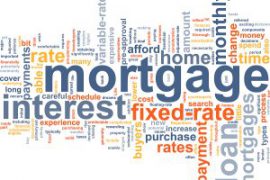Navigating personal finances can often feel like walking through a maze, and few commitments are as significant as taking on a mortgage. For many people, getting a mortgage is a big step toward owning a home and achieving financial stability.
However, the road to paying off a mortgage can seem long and intimidating, with years of payments ahead. That being said, there are various strategies you can use to pay off your mortgage faster and gain financial freedom sooner.
In this article, we will share five valuable tips to help homeowners pay off their mortgages faster or on time. These tips range from taking advantage of refinancing opportunities to smart budgeting methods, each tailored to different financial situations and goals.
Whether you’re someone who has owned a home for a while and wants to pay off your mortgage sooner or you’re a first-time buyer planning for the future, these tips can help.
So, let’s dive in and find out how you can pay off your mortgage and achieve peace of mind with your finances.
Making Budget Adjustments
When aiming for mortgage freedom, making strategic changes to your budget can make all the difference. By closely examining your spending habits and finding ways to save money, you can then put those extra funds toward paying off your mortgage faster.
This might involve trimming unnecessary expenses, renegotiating contracts for services you use, or finding more cost-effective options. Every pound you save adds up and helps decrease the amount you owe on your mortgage.
Taking this proactive approach not only speeds up the process of paying off your mortgage but also helps you develop better financial habits and resilience. By consciously managing your budget and using your resources wisely, you can make significant progress toward achieving your homeownership goals and ultimately enjoying a future without debt.
Securing a Lower Interest Rate or Shorter Term
Refinancing is a powerful tool for homeowners who want to pay off their mortgage faster or save on interest costs in the long run. By getting a lower interest rate or choosing a shorter loan term, homeowners can save a lot of money over the life of their mortgage.
This could mean having lower monthly payments or paying off the mortgage quicker, which then frees up extra money to put towards paying down the principal faster. However, it’s important to think carefully about the costs and benefits of refinancing and consider your own financial goals before making a decision.
That being said, this option would be tricky if you have a bad credit score. In that case, you would need to improve your credit score before trying to secure better loan terms.
While this is not a good idea if you’re doing it just for the sake of building your credit score, if you find yourself in a financial emergency with a low credit score, bad credit loans can help. These loans can not only come to the rescue when you’re struggling to make ends meet but also help build your credit score. Provided you make sure you make your repayments on time.
Paying More Than the Minimum
Making extra payments on your mortgage can easily speed up the process of paying it off and save you a ton of money in interest. When you consistently put extra money toward the principal balance, you end up shortening the overall term of your loan and paying less interest over time.
Even if you’re just making small payments regularly, it can add up to big savings and help you pay off your mortgage faster. Whether it’s a one-time lump sum or you gradually increase your monthly payments, every extra pound you put toward the principal makes a big difference in getting rid of your debt sooner.
This strategy gives you more control over your financial future and helps you achieve mortgage freedom ahead of schedule.
Accelerating Your Payoff Schedule
Biweekly payment plans are a straightforward and powerful way for homeowners to speed up paying off their mortgage. Instead of making one monthly payment, you split it into two smaller payments every two weeks.
Since there are 52 weeks in a year, you make 26 half-payments, which equals 13 full payments annually instead of the usual 12. This extra payment each year helps reduce your principal balance faster, which means you pay less in interest over time and can pay off your loan sooner.
By sticking to a biweekly payment schedule, you have the potential to shave off several years from your mortgage term and build home equity quickly. This payment plan would also sync up nicely with budgeting cycles and provide a convenient way to work toward your financial goals while minimising your long-term debt obligations.
Making Lump Sum Contributions
When you come into some extra cash like an inheritance, tax refund, or a bonus at work, it’s a great opportunity to pay off your mortgage sooner. Instead of splurging, you could put these windfalls toward your mortgage principal.
When you make a sizable one-time payment, it reduces your outstanding balance, which means you end up paying less in interest, making it easier to pay off your mortgage faster. The best part is that using these windfalls doesn’t mess with your monthly budget.
This strategy lets you take advantage of unexpected financial blessings to get closer to your homeownership goals and build a future without debt hanging over your head.
To Sum Up
Reaching mortgage freedom is all about staying focused, disciplined and planning smartly. By putting into action the five tips we’ve discussed, you can take charge of your finances and fast-track your journey to owning your home without debt.
Whether you’re cutting back on expenses, getting better loan terms, or making extra payments whenever you can, each of these strategies moves you closer to being debt-free in the long run.
With these methods, you’ll not only shorten the time it takes to pay off your mortgage, but also build up resilience and feel more secure about your financial situation. With persistence and smart money management, you can open the door to a brighter future, free from the burden of debt.





